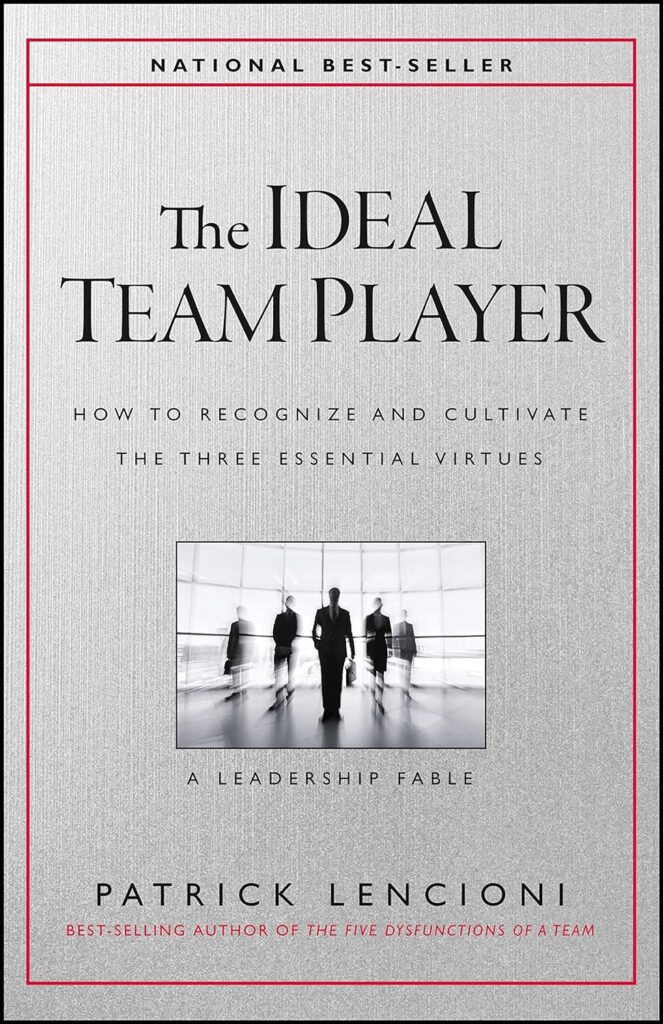First Quarter Newsletter

“Our lives are always moving in the direction of our strongest thoughts.”
– Craig Groeschel
I worked a couple of summers for my dad starting at age 14. He ran a local hardware store and I worked in the back in shipping and receiving. Everyday was the same, I would check in the merchandise when it came in and then move it out to each department in the store. It sounds like a boring job, but I actually liked it because there was never a lot of downtime and I was able to interact with people. The summer before my sophomore year of High School, I would work each day then I would go train for the upcoming football season by running, lifting, and doing agility drills. I was nervous about playing with the big boys, but knew if I trained hard enough I could compete with anyone. Late one afternoon before I got off work, my dad came to the back to visit with me. We were talking about the upcoming season and all I was doing to prepare. At some point in the conversation, he made a statement that looking back, changed my mindset from that day forward. He told me, “You can’t do it.” Those were his words. He told me I wasn’t big enough or fast enough to compete with the other guys. He said, “they are going to run over you.” I was heartbroken and numb from his words. I couldn’t get past the phrase, “You can’t do it.” I constantly heard them in my mind. They were on repeat. I heard them when I woke up and when I went to bed. They became a recording that played over and over until “You Can’t” became the theme in my mind.
You see, when I came into work that morning I was a confident young man. There wasn’t much that scared me and I was determined to succeed at whatever I did. Nothing was too big for me. I wanted to conquer it all and I truly believed that I could. The theme in my mind up until that point was, “Lets Go” and that’s how I approached life. However, when I left that afternoon, I was different. I had a new theme developing in my mind. That theme was, “Barry, you can’t.”
The new recording continued to play, and that season and the seasons that followed, I was very average and timid because I told myself I didn’t belong. The recording continued to play, and I developed some social anxiety and didn’t want to be around people because I believed they were better than me. The recording continued to play, and I became a passive person and allowed people to walk over me. The recording continued to play, and I began to settle for things in life instead of chasing after dreams. The recording continued to play, and as I got older I gained weight because I didn’t care about being healthy. The recording of “You Can’t” continued to play for many, many years, as my life kept moving in the direction of my strongest thought.
Can I ask you a question? What is your strongest thought right now? What is the recording being played in your mind? You may not even know there is a recording in your mind until you stop and really think about it. Are you like me? Did someone tell you that you can’t do it and now that is what you are telling yourself? Or did they tell you that you aren’t good enough? Maybe there was a situation that happened to you that you now believe you can’t recover from. Did you have a failure in your life that has led you to the mindset of I won’t move on from this? What is the recording in your mind? What are you telling yourself that you don’t realize you are telling yourself? Remember, your life is oftentimes moving in the direction of your strongest thought.

A few years ago I made the decision to change the recording in my mind. Through much time in counseling and humble self awareness, I realized that my self talk was unhealthy and was causing me to not be the best version of me. I realized that the current recording wasn’t working and it was time to change. It wasn’t easy because I had years of negative self talk to change. It took a lot of thought about what I wanted my new recording to be. Then I had to be intentional about daily recognizing the old recording and then immediately replacing it with the new one. I had to do this over and over and over until it became a habit. The good news, since I made the decision to change the recording in my mind, my life is moving in a totally different direction. A direction that is allowing me to grow, to learn, and to reach my full potential. Why? Because I am now moving in the direction of my new strongest thought.
Questions:
- Do you believe that we are oftentimes moving in the direction of our strongest thoughts? Why or why not?
- What is your strongest thought? Or, what is the recording playing in your mind?
- What caused this to be on repeat in your mind?
- What do you want the recording to be? Or, do you even care?
- What will you do to make this new recording a reality?
1-2-3 GROW!
Being Growth Minded is the first of our core values. The residents and facilities we serve deserve our very best and they can only receive that if we are committed to growth and bettering ourselves! When you grow, the company grows! Each “On The Road” issue will have a 1,2,3 Grow! section. This section, if you choose, will give you resources to grow both personally and professionally. There will be 1 Book, 2 Articles, and 3 Podcasts. Again, this is your choice, however my hope is that you will take full advantage of the resources provided!
#1 Book
The Ideal Team Player
– Patrick Lencioni

#2 Articles
Article 1
The Benefits of Positive Self-Talk
Some say that talking to yourself means you’re crazy. It isn’t true.
We have all heard that if you talk to yourself, you’re crazy, but that’s not always the case. According to research published by the American Psychological Association, talking to yourself in a positive way is actually very healthy for your psyche.
My first exposure to positive self-talk (PST) was reading The Little Engine That Could. Do you remember that book from your childhood? While trying to make it up a big hill, the little engine keeps saying to himself “I think I can, I think I can,” and of course, he did it. It’s a valuable lesson for children—really, for people of all ages—to learn and remember.
Positive self-talk is one of the most valuable tools you can use to keep yourself emotionally and mentally balanced. Many Olympic and professional athletes use it every time they practice or compete. I’ve seen it used by rock stars, movie stars, star surgeons—and I use it on a daily basis myself.
Positive self-talk is also a great way to self-soothe, and you can use it anywhere. It can help dial back the anxiety and depression from your moods, and it’s a simple method of building self-esteem. The real beauty is that all these things happen at the same time when you say positive things to yourself.
When it comes to positive self-talk, the simpler the better: My own personal favorite is “I’m okay.” Back when I was in the movie business, I used to hang out with the stunt team and always marveled at how they could fall down a flight of stairs and not even break a fingernail. I was told that the secret was to stay loose and talk to your body.
I had the chance to try it out one day — no, not as a stunt man. My apartment was on the second floor of a duplex, and one rainy day I slipped on the top step and started tumbling down. The only thing I could think of doing was what the stunt people said: “Stay loose.” And I did. I talked to my body and told it we were okay.
I fell down two flights of steps, talking to myself this way. At the bottom, I was flat on my back, wet, and scared, but I started trying to figure out what to do next. Checking out how I was feeling as I lay there, I noticed no sharp pains and I could wiggle my toes and fingers. Gradually the feeling came back into my body, and I slowly rolled to my side and began standing up.
Much to my surprise I was just fine and went into the house to shower. I believe to this day that it was the positive self-talk that helped keep me from being seriously injured. I had used it before but never in an emergency situation, and it worked beautifully.
Besides possibly saving your life, positive self-talk can help you calm down from anxiety and feel less sad when you are depressed. When I wake up and say to myself, “Hi Barton. You’re going to have a good day today,” I am programming my brain to feel good. If you do it throughout the day, fewer things will bother you, and you may become more friendly with yourself and others.
References
Kross, E., Bruehlman-Senecal, E., Park, J., Burson, A., Dougherty, A., Shablack, H., Bremner, R., Moser, J., & Ayduk, O. (2014). Self-talk as a regulatory mechanism: How you do it matters. Journal of Personality and Social Psychology, 106(2), 304–324. https://doi.org/10.1037/a0035173
Barton Goldsmith, Ph.D., LMFT is a licensed psychotherapist, a columnist, and the author of 7 books, including Emotional Fitness for Couples.
Article 2
Forgotten seniors need time, care
By Tom Underwood
They are the heroes that led the charge at the Battle of Guadalcanal, who championed the civil rights movement, who stayed home and raised their families. They baked our favorite cookies, patched up our scrapes and kissed our bruises when we fell. They are our parents, grandparents, dear relatives and friends who have imparted their wisdom, candor and values to us so that we could build our own lives and families.
Where are they now? While we’d like to think they’re enjoying their “golden years,” thousands of them are living alone in nursing homes and long-term care facilities right in our own neighborhoods.
A staggering number of them — even those with family — spend weekends, birthdays and even holidays by themselves, alone in their memories. I call them a “forgotten population.” For most of us who are in good health, going about our busy lives, we don’t often think about aging, but consider the following:
● Georgia has the ninth fastest growing 60-plus population and the 18th fastest growing 85-plus population in the United States.
● According to the National Center for Health Statistics, more than 50 percent of nursing home residents have no close relatives, and 46 percent have no living children.
● An estimated 60 percent of nursing home residents never have visitors.
Laurie, is one of the forgotten. Not long ago, on Christmas day, a group of volunteers from Second Wind Dreams, an Atlanta-based nonprofit, was delivering gifts to some of the elderly in her nursing home. One of the children in the volunteer group noticed that Laurie was walking up and down the hall attired in an evening gown.
She was so dressed up, in fact, that the girl thought she must be on her way to a black-tie event and remarked to Laurie how beautiful she looked. Laurie simply said: “You know hon, I heard I was going to get a visitor today, so I wanted to look nice.” It turned out that Laurie was one of the people the volunteers had on their list to visit.
Her story is the story of millions of our elderly living among us in elder care communities throughout Atlanta, across our state, and throughout the country.
Sadly, many in this population rarely leave the nursing home premises. Medical challenges, disability and the death of close friends and loved ones take a gradual toll on their mental and emotional health and well being. Limited social contact only exacerbates the problem. It’s no wonder that depression among the elderly is rampant.
While the fastest growing demographic in our country is the elderly, organizations that support seniors often receive the least support. I believe this is partly because people focus on the perceived health cost burden of the elderly instead of the tremendous value they can bring to all generations.
Working for a health and wellness company, I see up close the health challenges in this population. While health care and costs are issues that all of us will be addressing for years to come, there are things that all of us can do now.
This population also has simple, more basic needs, which if fulfilled, often eliminate the bigger needs. A happy, satisfied person is a healthier person. Studies show people who live longer and healthier lives have strong support systems that keep them motivated.
Our contributions don’t have to be big or costly. You’d be amazed at what a simple deck of cards with images large enough to read can mean to a senior who has played games his or her whole life.
While we can’t all afford a monetary donation, we can give the gift of time. Look for ways to volunteer. A simple visit any time of year to walk, talk or share a meal with a resident helps lonely spirits soar.
Our seniors have given us much and can still teach us many things. Treasure them and what they have achieved and how far they have come in life. And most important, reach out to them and show them that we still care and that we have not forgotten.
Tom Underwood is CEO of Alere Health, the Atlanta-based health management services business of Alere Inc. Alere Health is the presenting corporate sponsor of the Alere-Second Wind Dreams annual Golf Classic on Oct. 18.
The Atlanta Journal-Constitution
#3 Podcast
Podcast Recommendations
Check out the upcoming first-quarter birthdays and work anniversaries, along with the updated list of new team additions.
BIRTHDAYS

Shannon Whitson – April 6

Kamery Palmer – April 27

Aaron Crow – May 2

Nicole Flowers – May 4

Lauren Balmenti – June 1

Casey Moore – June 10

Mandy Christianson – June 11
WORK ANNIVERSARIES

Kendra Staggs 05/30/19 – 5 YEARS

Eric Pathana 06/01/23 – 1 YEAR

Danielle Rogers 06/14/23 – 1 YEAR

Casey Moore 06/20/23 – 1 YEAR

Kamery Palmer – 06/29/23 – 1 YEAR
NEW HIRES

Amanda Steward 03/18/24

Tara Lofton 03/18/24

Dawn King 01/22/24


